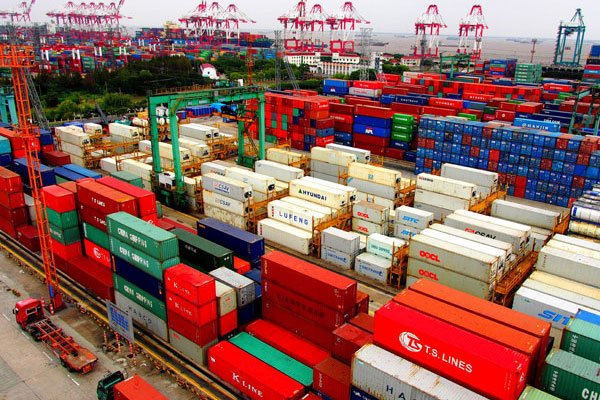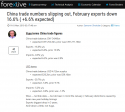From elsewhere:
"
I have one big issue with the research (which I just finished reading on Brookings Institution), there was a huge tax change that took place in 2008-2009.
On Jan 1st, 2009, China shifted from a corporate investment VAT tax to a corporate consumption VAT (also known as the enterprise tax in China). At the time China was in a huge investment boom and this made the tax change much more of a tax cut then expected. This was followed by a tax cut from 6% to 3% on industrial SMEs and significantly increased tax rebates on exports. Premier Wen Jiabao claimed that cut over $150 billion from industrial taxes in 2009 alone.
Source:
The authors acknowledge the switch from the corporate tax to the EU-style VAT in 2016 (which is where the analysis ends), but make no mention of the 2008-2009 tax change. This is concerning because the date they point to as the beginning of “tax discrepancy” is also 2008-2009.
I actually emailed the main author about this to see what he says. Will update you all if he responds.
From prior research experience, I had the pleasant opportunity of meeting Professor Chang-Tai. So I’m hoping to get a more intellectually stimulating response.
I’m expecting him to acknowledge a few shortcomings of his research, like these tax cuts in 2009, while pointing out that the broader point of tax growth discrepancy with reporting GDP growth remains.
For example, $150 billion of taxes over the 8 years they focus on would add up to $1.2 trillion less tax revenue. But this assumes the tax cuts and rebates continued for the time period, and that tax enforcement did not improve (it did although we don’t know how much).
I’ll let y’all know how he responds though.
I believe the most unexpected discovery from this research is that the National Bureau of Statistics is very truthful with their statistics and are not biasing the results. This disproves the oft-made claim that China’s government manipulates its GDP results in some weird long-running conspiracy to deceive foreigners.
Their conclusion is that Chinese economic statistics are truthful, but not very accurate.
I am a bit confused why they claim that 1994-2007 GDP growth numbers were more accurate while, in the next sentence, saying the statistics were less rigorous. If the Chinese economy grew less than reported before the global financial crisis, then China’s 2008-2016 growth statistics would be underreported. Likewise, if China’s economy grew more than reported before the global financial crisis, then 2008-2016 would be over-reported.
"


